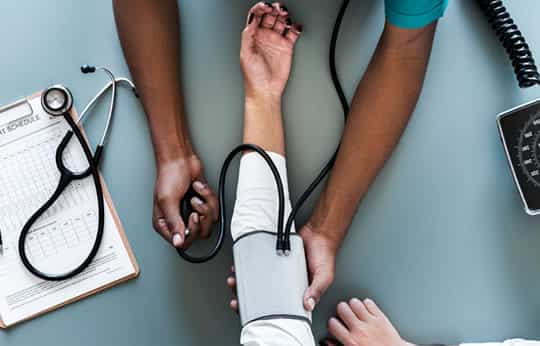This routine daily behaviour found to be a sign of high blood pressure and stroke.
Taking an afternoon nap has previously been suggested to fight fatigue, improve memory and mood, and in general be good for health.
However, a study reveals that regular napping during the day increases the odds of high blood pressure by 12 percent and stroke by 24 percent.
Other warning signs of high blood pressure can include dizziness, chest pain, headache, shortness of breath, blurry vision, and nosebleeds.
Daily napping
While short naps are sometimes healthy, they can be a symptom of poor sleep and lead to a higher risk of heart disease, and diabetes.
According to the study, people who nap every day are more likely to be men, smokers, drinkers, insomniacs, have lower income and education, to snore, and typically be an evening person.
The results show that as the number of naps increases (from not at all to occasionally or occasionally to often), the likelihood of having high blood pressure soars by 40 percent.
The analysis shows frequent nappers who were under 60 years old were 20 percent more likely to have high blood pressure than those who didn’t have the habit of napping.
The risk for participants who were older than 60 and napped often was increased by 10 percent compared to those who never took naps.
The team used UK Biobank data from 358,451 participants with no history of hypertension or stroke with a follow-up of 11 years.
The subjects were divided into 3 groups (never or rarely, sometimes, and usually napping) based on self-reported daytime nap frequency.
Dr Michael Grandner, an expert on sleep and health, commenting on the study, said:
“This may be because, although taking a nap itself is not harmful, many people who take naps may do so because of poor sleep at night.
Poor sleep at night is associated with poorer health, and naps are not enough to make up for that.
This study echoes other findings that generally show that taking more naps seems to reflect increased risk for problems with heart health and other issues.”
How to lower blood pressure
Many studies have found that following a healthy diet, exercise, and getting good quality sleep will reduce hypertension dramatically.
For example one study shows that food containing potassium along with lower sodium, can help to reduce hypertension.
A review suggests that even less strict plant-based diets containing small amounts of animal products can also lower blood pressure.
A UK study found that a diet high in flavanols such as berries, nuts, cocoa products, apples, and tea can improve blood circulation and vascular health.
Another study shows that a little exercise plus following the DASH diet leads to a remarkable reduction in blood pressure and weight loss.
This study was published in the journal Hypertension (Yang et al., 2022).

